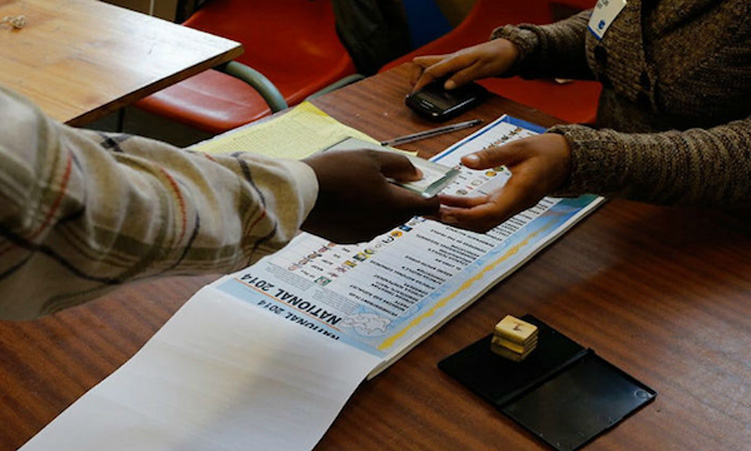LPM questions ECN’s emergency procurement for election ballots

LPM questions ECN's emergency procurement for election ballots
The Landless People’s Movement (LPM) has raised concerns over the Electoral Commission of Namibia’s (ECN) decision to bypass the usual public tender process in favor of an emergency procurement for the printing of ballot papers for the country’s upcoming elections.
LPM representative Ivan Skrywer revealed that the party’s lawyer, Patrick Kauta, had formally written to the ECN, seeking clarification on why the urgent procurement was necessary.
The ECN recently announced that South African-based family printing company, Ren-Form, had been selected to design, print, package, and distribute the election ballots.
“We want to understand why they resorted to an emergency purchase when they had ample time to go through a public tender process.
We have also requested the minutes of those discussions,” Skrywer said during a press briefing on Friday.
On Thursday, Skrywer also addressed a letter to Peter Shaama, head of referendums at the ECN, expressing skepticism over the decision to use emergency procurement and confirming LPM’s participation in an upcoming site visit to Ren-Form.
“I confirm that LPM will participate in the scheduled visit to the selected South African-based company.
However, we must remind you that we have consistently raised objections to this direct procurement process,” Skrywer wrote.
“We reserve all our rights and maintain our objections, as we articulated in our statements to the last Political Liaison Committee.
Our involvement in this visit should not be seen as an endorsement of the direct procurement process,” the letter further stated.
Ren-Form has come under scrutiny due to its association with controversial businessman Wicknel Chivayo, known for his ties to Zimbabwe’s ruling Zanu-PF party and President Emmerson Mnangagwa.
A report by South African investigative outlet, Daily Maverick, highlighted allegations that Chivayo had inflated several invoices while acting as Ren-Form’s agent for Zimbabwe’s electoral ballot procurement.
“In one instance, Ren-Form billed the Zimbabwe Electoral Commission (ZEC) 23 million rand for a server that typically costs only 90,000 rand,” noted the July 2024 report from Daily Maverick.
When asked whether the ECN had thoroughly vetted Ren-Form’s background, ECN spokesperson De Wet Siluka deflected, requesting access to the reports in question.
“Show me the reports,” Siluka responded.
The controversy surrounding Ren-Form has sparked debate in Namibia, raising questions about transparency in the procurement process and the ECN’s handling of such a critical aspect of the electoral infrastructure.
About The Author
dailymailafric
I am an avid African news observer, and an active member of Daily Mail Africa.
I’m Passionate about staying informed on diverse topics across the continent,
I actively contribute to publishing on political, economic and cultural developments in Africa.



